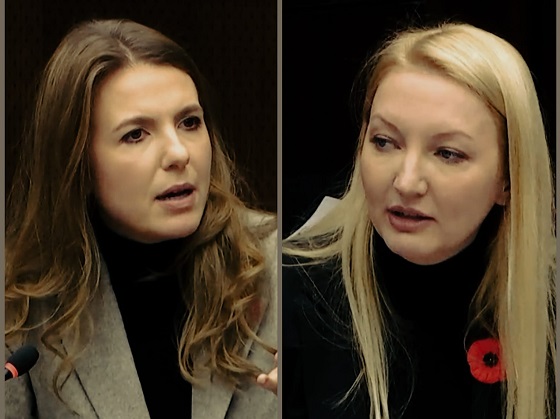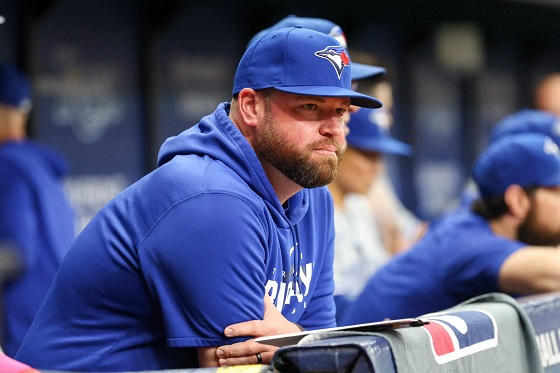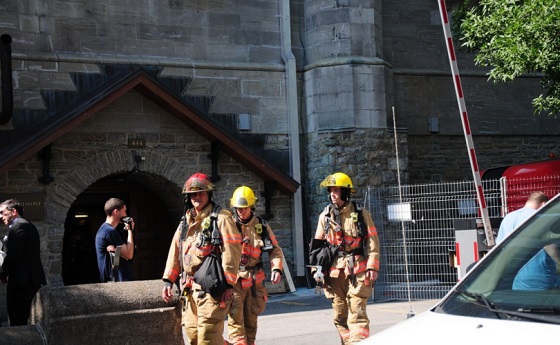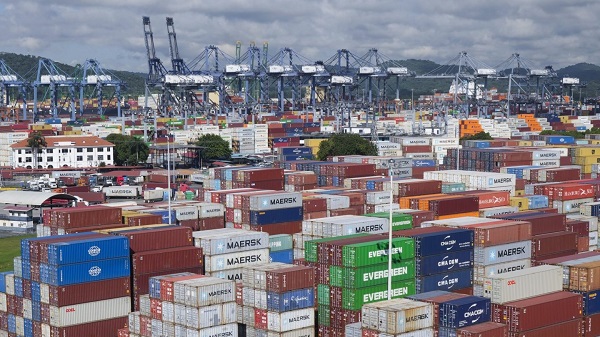National
Committee Hearing Exposes Trudeau’s Political Spin on Foreign Interference

In a Circus of Leaks, Double Standards, and Evasions, Conservatives Call Out the Trudeau Government for Putting International Optics Over Canadian Sovereignty
In Canada’s recent hearing with the Standing Committee on Public Safety and National Security (SECU) on alleged interference by Indian government-linked agents, what should have been a serious inquiry into national security turned into a Liberal-led circus of deflections, double standards, and selective outrage. The Trudeau government trotted out high-ranking officials—representatives from CSIS, the RCMP, the Privy Council Office, and Global Affairs Canada—who were there to answer for the alleged interference tactics targeting Canadians. And to top it off, they were asked why, instead of informing Canadians directly, they’d chosen to leak the intel to The Washington Post. Why were Canadians the last to know about threats on their own soil? And why did a foreign newspaper get the scoop on a story affecting Canadian sovereignty?
At issue were allegations that Indian agents had been involved in intimidation tactics and organized criminal activities targeting Canada’s Sikh community, particularly those sympathetic to the separatist movement. The committee also questioned why the Trudeau government’s response has been to selectively leak this information to American media, while keeping Canadians in the dark about similar threats from other foreign governments—particularly China.
The Leaks to The Washington Post: Information for Foreign Press, Silence for Canadians
Instead of informing Canadians directly, the Trudeau government decided it was a better idea to leak details about alleged Indian interference to The Washington Post, claiming it was to combat “misinformation” internationally. Let’s pause for a moment—this is Canada we’re talking about, and the government feels it’s necessary to share news about threats to Canadians with foreign media instead of Canadians themselves. That selective leak didn’t go unnoticed by Conservative MPs, especially Raquel Dancho. Dancho took the PCO to task, asking why, when it’s Indian interference, they rush to get the word out to American media, but when it comes to Chinese interference, they hide behind “national security.” Canadians watching this hearing saw the hypocrisy plain as day.
Then enter Jennifer O’Connell. She wasn’t there to press for answers—she was there to protect the government narrative. Instead of holding the PCO accountable, O’Connell fed them a lifeline with soft, scripted questions. She was practically giving them cue cards. She asked them to “explain” the reasoning behind the leak to The Washington Post, letting the PCO offer up the excuse of “controlling the narrative.” Controlling the narrative? You don’t say. Jennifer O’Connell might as well have been reading from a Liberal Party talking points memo, trying to dress up a blatant international PR stunt as a move to protect Canadians.
But here’s where it falls apart. Dancho’s challenge was clear: if the Trudeau government had no problem leaking intel on India to The Washington Post, why do they stay silent on the Chinese interference claims that have rocked our elections? Why are Canadians kept in the dark when it doesn’t suit the Liberals’ image? This isn’t national security; this is political convenience, plain and simple.
Conservatives Call Out Liberal Spin and Selective Transparency
Raquel Dancho didn’t mince words, asking why the government leaks intelligence on Indian interference to American media yet hides CCP-related interference under a “national security” guise.
“I wish that the Liberal members would apply that same energy to holding their own Prime Minister accountable for failing to stop interference into our elections,”
She said, calling out the hypocrisy point-blank. Dancho’s comments exposed the Liberals’ inconsistent approach to foreign interference and questioned why the government continues to treat Canadians like afterthoughts.
Glen Motz zeroed in on the glaring gaps in Canada’s vetting process for foreign diplomats, particularly those from India. He pointed out that expelling diplomats means nothing if their replacements are allowed to enter without adequate security checks. Motz’s questions cut to the core of the Liberals’ “tough on interference” stance, revealing it as hollow when diplomats allegedly linked to interference can come and go unchecked.
Dane Lloyd challenged the government’s decision to leak information to The Washington Post rather than informing Canadians directly, highlighting a fundamental question: Why does the Canadian government prioritize international press over its own people? His frustration echoed what many Canadians feel—that their government is more interested in protecting its image on the world stage than ensuring Canadian sovereignty and safety.
The Bottom Line
This SECU Committee hearing confirmed the worst fears of Canadians: the Trudeau government is more interested in international optics than national security. The Liberals pick and choose which foreign threats to publicize, conveniently spinning some stories while keeping others under wraps—all based on what best serves their political agenda. If this is the government’s idea of protecting Canadian sovereignty, it’s no wonder Canadians are left questioning their safety.
And here’s where the Liberal hypocrisy hits new lows: instead of owning up to their failures, they tried to spin it, suggesting that Pierre Poilievre is somehow responsible for the foreign interference threats that have emerged on Trudeau’s watch. But let’s be real—if the Liberals had names of Conservative collaborators in interference plots, we all know they would be the first to name or leak them to the press. Instead, the Privy Council Office’s actions and The Washington Post leak were backed by none other than Trudeau’s own Prime Minister’s Office.
Conservatives like Raquel Dancho, Glen Motz, and Dane Lloyd came prepared to call out this hypocrisy. They demanded transparency and accountability—the very things Trudeau’s government seems reluctant to provide. This wasn’t a hearing on foreign interference; it was an exposé on the Trudeau government’s shameless double standards and lack of genuine concern for Canadian sovereignty.
In Canada’s darkest hours, when it comes to defending our sovereignty, it’s clear that it’s the Conservatives—not the Liberals—who are standing up for Canadians, demanding the truth, and holding this government to account. Trudeau’s Liberals have shown they’ll trade Canadian security for political optics, undermining everything Canada stands for. And Canadians deserve so much better.
Invite your friends and earn rewards
Business
Parliamentary Budget Officer begs Carney to cut back on spending

PBO slices through Carney’s creative accounting
The Canadian Taxpayers Federation is calling on Prime Minister Mark Carney to cut spending following today’s bombshell Parliamentary Budget Officer report that criticizes the government’s definition of capital spending and promise to balance the operating budget.
“The reality is that Carney is continuing on a course of unaffordable borrowing and the PBO report shows government messaging about ‘balancing the operating budget’ is not credible,” said Franco Terrazzano, CTF Federal Director. “Carney is using creative accounting to hide the spiralling debt.”
Carney’s Budget 2025 splits the budget into operating and capital spending and promises to balance the operating budget by 2028-29.
However, today’s PBO budget report states that Carney’s definition of capital spending is “overly expansive.” Without using that “overly expansive” definition of capital spending, the government would run an $18 billion operating deficit in 2028-29, according to the PBO.
“Based on our definition, capital investments would total $217.3 billion over 2024-25 to 2029-30, which is approximately 30 per cent ($94 billion) lower compared to Budget 2025,” according to the PBO. “Moreover, based on our definition, the operating balance in Budget 2025 would remain in a deficit position over 2024-25 to 2029-30.”
The PBO states that the Carney government is using “a definition of capital investment that expands beyond the current treatment in the Public Accounts and international practice.” The report specifically points out that “by including corporate income tax expenditures, investment tax credits and operating (production) subsidies, the framework blends policy measures with capital formation.”
The federal government plans to borrow about $80 billion this year, according to Budget 2025. Carney has no plan stop borrowing money and balance the budget. Debt interest charges will cost taxpayers $55.6 billion this year, which is more than the federal government will send to the provinces in health transfers ($54.7 billion) or collect through the GST ($54.4 billion).
“Carney isn’t balancing anything when he borrows tens of billions of dollars every year,” Terrazzano said. “Instead of applying creative accounting to the budget numbers, Carney needs to cut spending and debt.”
Education
Why classroom size isn’t the issue teacher unions think it is

This article supplied by Troy Media.
The real challenge is managing classrooms with wide-ranging student needs, from special education to language barriers
Teachers’ unions have long pushed for smaller class sizes, but the real challenge in schools isn’t how many students are in the room—it’s how complex those classrooms have become. A class with a high proportion of special needs students, a wide range of academic levels or several students learning English as a second language can be far more difficult to teach than a larger class
where students are functioning at a similar level.
Earlier this year, for example, the Elementary Teachers’ Federation of Ontario announced that smaller class sizes would be its top bargaining priority in this fall’s negotiations.
It’s not hard to see why unions want smaller classes. Teaching fewer students is generally easier than teaching more students, which reduces the workload of teachers. In addition, smaller classes require hiring more teachers, and this amounts to a significant financial gain for teachers’ unions. Each teacher pays union dues as part of membership.
However, there are good reasons to question the emphasis on class size. To begin with, reducing class size is prohibitively expensive. Teacher salaries make up the largest percentage of education spending, and hiring more teachers will significantly increase the amount of money spent on salaries.
Now, this money could be well spent if it led to a dramatic increase in student learning. But it likely wouldn’t. That’s because while research shows that smaller class sizes have a moderately beneficial impact on the academic performance of early years students, there is little evidence of a similar benefit for older students. Plus, to get a significant academic benefit, class sizes need to be reduced to 17 students or fewer, and this is simply not financially feasible.
In addition, not only does reducing class sizes mean spending more money on teacher compensation (including salaries, pensions and benefits), but it also leads to a decline in average teacher experience and qualifications, particularly during teacher shortages.
As a case in point, when the state of California implemented a K-3 class-size reduction program in 1996, inexperienced or uncertified teachers were hired to fill many of the new teaching positions. In the end, California spent a large amount of money for little measurable improvement in academic performance. Ontario, or any other province, would risk repeating California’s costly experience.
Besides, anyone with a reasonable amount of teaching experience knows that classroom complexity is a much more important issue than class size. Smaller classes with a high percentage of special needs students are considerably more difficult to teach than larger classes where students all function at a similar academic level.
The good news is that some teachers’ unions have shifted their focus from class size to classroom complexity. For example, during the recent labour dispute between the Saskatchewan Teachers’ Federation (STF) and the Saskatchewan government, the STF demanded that a classroom complexity article be included in the provincial collective agreement. After the dispute went to binding arbitration, the arbitrator agreed with the STF’s request.
Consequently, Saskatchewan’s new collective agreement states, among other things, that schools with 150 or more students will receive an additional full-time teacher who can be used to provide extra support to students with complex needs. This means that an extra 500 teachers will be hired across Saskatchewan.
While this is obviously a significant expenditure, it is considerably more affordable than arbitrarily reducing class sizes across the province. By making classroom complexity its primary focus, the STF has taken an important first step because the issue of classroom complexity isn’t going away.
Obviously, Saskatchewan’s new collective agreement is far from a panacea, because there is no guarantee that principals will make the most efficient use of these additional teachers.
Nevertheless, there are potential benefits that could come from this new collective agreement. By getting classroom complexity into the collective agreement, the STF has ensured that this issue will be on the table for the next round of bargaining. This could lead to policy changes that go beyond hiring a few additional teachers.
Specifically, it might be time to re-examine the wholesale adoption of placing most students, including those with special needs, in regular classrooms, since this policy is largely driving the increase in diverse student needs. While every child has the right to an education, there’s no need for this education to look the same for everyone. Although most students benefit from being part of regular academic classes, some students would learn better in a different setting that takes their individual needs into consideration.
Teachers across Canada should be grateful that the STF has taken a step in the right direction by moving beyond the simplistic demand for smaller class sizes by focusing instead on the more important issue of diverse student needs.
Michael Zwaagstra is a senior fellow with the Frontier Centre for Public Policy.
Troy Media empowers Canadian community news outlets by providing independent, insightful analysis and commentary. Our mission is to support local media in helping Canadians stay informed and engaged by delivering reliable content that strengthens community connections and deepens understanding across the country
-

 Addictions2 days ago
Addictions2 days agoCanada is divided on the drug crisis—so are its doctors
-

 Bruce Dowbiggin2 days ago
Bruce Dowbiggin2 days agoMaintenance Mania: Since When Did Pro Athletes Get So Fragile?
-

 Frontier Centre for Public Policy1 day ago
Frontier Centre for Public Policy1 day agoRichmond Mayor Warns Property Owners That The Cowichan Case Puts Their Titles At Risk
-

 National2 days ago
National2 days agoConservative bill would increase penalties for attacks on places of worship in Canada
-

 armed forces2 days ago
armed forces2 days agoCanadian veteran says she knows at least 20 service members who were offered euthanasia
-

 Alberta2 days ago
Alberta2 days agoHow economic corridors could shape a stronger Canadian future
-

 Business1 day ago
Business1 day agoMark Carney Seeks to Replace Fiscal Watchdog with Loyal Lapdog
-

 Business1 day ago
Business1 day agoSluggish homebuilding will have far-reaching effects on Canada’s economy











